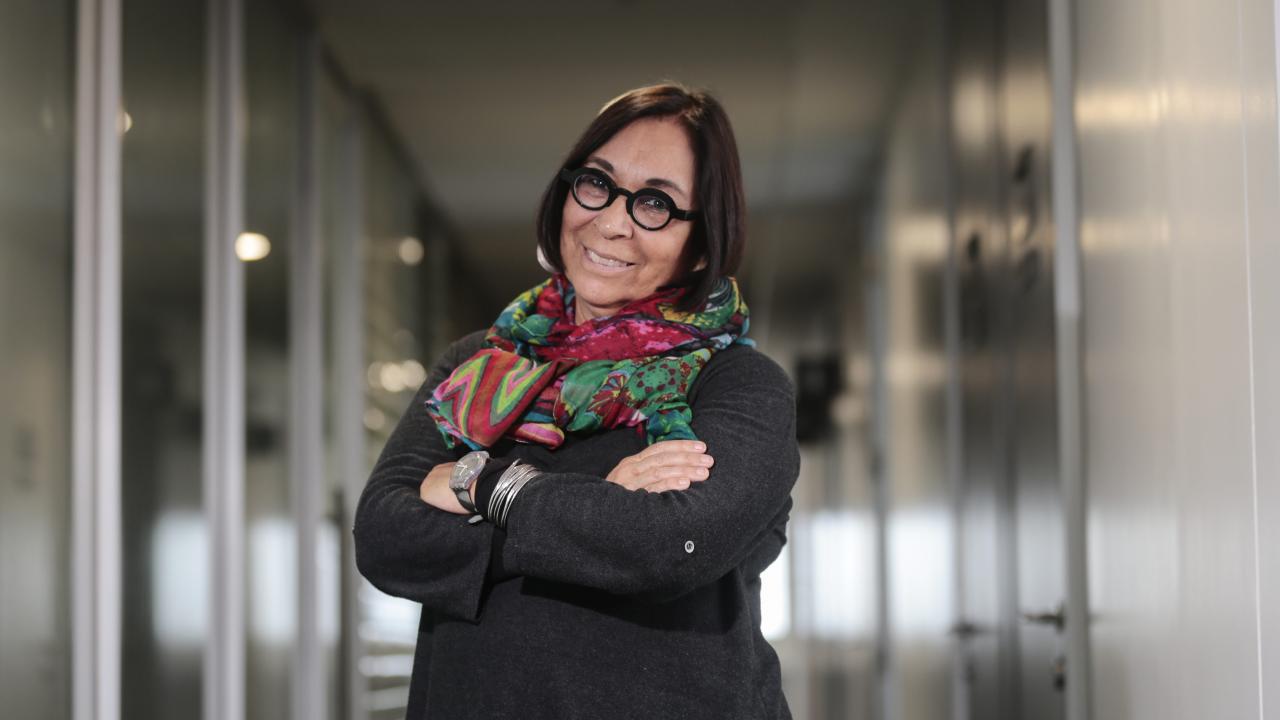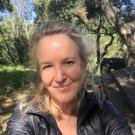
An internationally renowned UC Davis anthropologist recently received one of the field’s highest honors.
Marisol de la Cadena, a professor of anthropology and science and technology studies in the College of Letters and Science at UC Davis, has been awarded the 2024 Vega Medal from the Swedish Society for Anthropology and Geography. The award recognizes de la Cadena’s influential contributions to the study of Indigenous peoples and the environment.
“It was a huge surprise — I am honored, thrilled and extremely happy,” said de la Cadena. “Recognition of my work is not easy because the entities and relations I write about are beyond the limits of modern thought, therefore within it, they cannot be recognized.”
Beyond Latin America
De la Cadena’s anthropology is located at the interface of science and technology studies, feminist philosophy, and political ecology. Interested in Latin America, specifically Colombia and Peru, de la Cadena explores complexities emerging at the intersection of modern and amodern politics, history, the ahistorical, and anthropologies across worlds.
“My thinking/writing flows through ‘not knowing’ as epistemic stance and ethnographic practice,” de la Cadena said. “Recognition of this method is unusual in academia, thus radically meaningful, and a tribute to Mariano and Nazario Turpo, the Indigenous thinkers that led me to it.”
Decade-long conversations between de la Cadena and Mariano and Nazario Turpo, a father and son belonging to the runakuna or Quechua people, led to de la Cadena writing Earth-Beings: Ecologies of Practice Across Andean Worlds (Duke University Press). De la Cadena also authored Indigenous Mestizos: The Politics of Race and Culture in Cuzco, Peru, 1919-1991 (Duke University Press), among numerous other books and articles. In 2018, she co-edited A World of Many Worlds (Duke University Press), which focuses on the possibilities that emerge when Indigenous collectives dialogue with the philosophy of science.
Currently, de la Cadena is working on a project tentatively titled “Making Cow,” which as she proposes is different from “making cattle.” The research, conducted in Colombia, analyzes the conceptual and political consequences of this difference.
“If we think both cows and cattle as multispecies relations, 'cows' are an endangered agricultural condition,” de la Cadena explained. “Meanwhile, 'cattle' thrive! This impacts regional landscapes, local economy and what we call the environment.”
Praise from the field
The Swedish Society for Anthropology and Geography called de la Cadena “a prominent voice in public debates advocating for Indigenous rights regarding resource exploitation, megaproject construction, and other environmental and developmental issues.”
“Beyond her academic work, de la Cadena has been actively engaged in issues of social justice in Peru and around the world,” the society said in a statement. “Her academic work, published in both Spanish and English, has gained her considerable international recognition, and her theories have inspired anthropologists across the Global South and the Global North, including Sweden.”
The Vega Medal is named after a 19th-century ship, the first to navigate the Northeast Passage. The date of the Vega Symposium, April 24, commemorates the anniversary of the Vega’s arrival in Stockholm following the Northeast Passage expedition in 1880.
After the presentation of the medal by the Swedish royal family, de la Cadena will give an open lecture on her research to the public.
“I will present my work on ‘earth beings,’ those entities unfathomable to modern thought,” de la Cadena said. “I am absolutely intrigued about their encounter with the Swedish King!”
YOU MAY ALSO LIKE THESE STORIES

UC Davis Anthropologist Wins American Ethnological Society’s Senior Book Prize
Suzana Sawyer, a professor in the Department of Anthropology, recently received the American Ethnological Society’s Senior Book Prize for her 2022 book The Small Matter of Suing Chevron (Duke University Press).

Uncovering the Origins of Human Behavior and Society
In the Integrative Anthropology Lab at UC Davis, Manvir Singh combines evolutionary, cognitive and sociocultural methods and theory to tease apart the origins of human behavior and societies.
